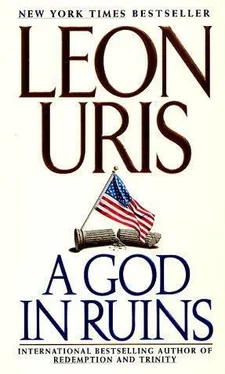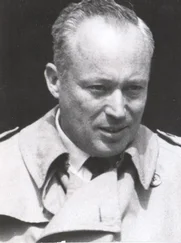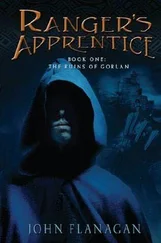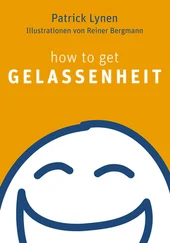Quinn’s smile burped up to a short laugh. Tomtree pretended not to hear. Quinn knew what kind of brawl was coming up. Keep the powder dry for the last half hour, he told himself.
“The American people must not roll dice,” Thornton went on. “We must not mistake my opponent as a Western hero, the sheriff in High Noon. This is a reckless man whose claim to fame has come about through violence.
“In the AMERIGUN fiasco Quinn O’Connell put lives in danger a dozen times with tactics illegal in our system of justice.
“Do we want a shoot-‘em-up-first president? Do we want to trust the future of our nation to a man whose finger is always on the trigger?”
Strong, strong stuff and only two minutes and thirty-two seconds had passed. “Mr. Tomtree, you have credit for twenty eight seconds.”
Quinn slipped a high stool under him, found a comfortable position, and rested his arms on his podium, speaking without notes, as Carter Carpenter nodded that his time had begun.
“Thornton Tomtree has done an admirable job in the past year of helping us heal our wounds, but he has done an even more admirable job of salvaging his own reputation.
“The day on which Mr. Tomtree assumed office four years ago, the United States proliferated with a third of a billion guns, one for every man, woman, and child in America.
“Bogus militias had spread like pack rats in our forests and canyons and cities. Today, the White American Christian Arrival claims nearly two hundred thousand followers, followers of Adolf Hitler and purveyors of hate.
“From the time of his first inauguration until this day, Thornton Tomtree has never once raised the issue of gun control.
“He, like many Republicans, and Democrats, went stone deaf, dumb, and
blind during the intimidation waltz played by
AMERIGUN.
“Thirty thousand Americans are killed each year by guns. Match that against sixty thousand killed in Vietnam over a ten year period.
“Each year more Americans die by gunfire than are killed in traffic accidents! More people die by gunfire than die from Alzheimer’s ... or by leukemia .. . more than are killed by cirrhosis.”
Thornton tapped the bell on his podium.
“Those are pretty heavy numbers,” Carter Carpenter said. “Would you like to answer them?”
“Yes, I would,” Thornton said. “It is easy to bandy about superficial numbers.”
“I hope so,” Quinn said, “we drew them off the Bulldog Information Net, which guarantees their accuracy.”
“Raw data,” Thornton said, “can be manipulated to suit any argument. Private ownership of weapons has been an American tradition from the inception of the nation. They cleared the way as we moved west. Those so-called statistics all have ipso facto’s connected to them. The numbers are in the eyes of the beholder. We may have come to that point where there has to be new thinking on the subject. But we must wait until the investigations are done and all the information is in. We must not rush to judgment and in so doing endanger a basic American right.”
“Hold on, sir,” Quinn interrupted. “What about the monumental investigation you promised? It has been a year, forty-four million dollars has been spent, and there is no report.
“It is a matter of American justice that we get all the information in. When I received the Four Corners commission’s preliminary report last February, I had to go before the American people and tell them that Six Shooter Canyon had to become a permanent mass grave. I sensed, as president, that our people needed more time to heal. If we had released the thousands of pages of documents, it would have only served to intensify national pain and make the American people relive the incident over and over.
“No matter our history and traditions, the tragedy in the canyon was a three and a half billion to one shot. It cannot and will not ever happen again, no matter what resolution we come to on gun ownership.”
“Both of you gentlemen have stated your basic positions. Should we hold this data in mind and move on to another subject?”
“No, sir,” Quinn said quickly. “This is the issue that brought me here. Yesterday, today, and tomorrow, fourteen children daily will be killed by guns. In addition to the thirty thousand slain, another hundred thousand are wounded, filling our emergency rooms with blood. Each gun death costs us $395,000. We are the shame of the civilized world. One of the richest forty nations in the world, the United States alone is responsible for half of all gun deaths.”
Thornton Tomtree felt his first blip of fear. He knew that Quinn had gotten a foot in the door of his Christian Right. He had known exactly what statistics Quinn would throw out. It was the pulsating manner in which Quinn delivered his message, without bullying. Thornton knew he could say the exact same words and never achieve the same effect. Thornton glanced at Darnell. He was a statue. The overall debate strategy now evolved in Thornton’s mind. To spring the trap? Yes? When to spring the trap?
Thornton smoothly shifted gears into his achievements, as immortalized on the Bulldog Information Network. Trade deficit down, budget surplus; Social Security funded for the century; great medical achievements; full employment; and world commerce, commerce in which the United States was the power that was!
Quinn’s list of achievements was paler stuff, but the kind of stuff which had held Colorado up as a light of the nation.
Thornton jumped on Quinn’s opening fusillade of helter skelter statistics as another example of his recklessness.
Now to hit Quinn with the “doom and gloom” speech Quinn had made during the primaries in Jackson, Mississippi. The two major elements of it were world population control and the finite resources of the planet.
Tomtree was almost overwhelmingly tempted to bring up the birth-control issue. But birth control and pro choice was a chancy subject. Most Americans, by a wide margin, favored and practiced both.
If somehow Thornton could drive a wedge between the issue and the fact that O’Connell was a Catholic. He caught a glimpse of Darnell, whose eyes told Thornton he might be setting a trap for himself.
Okay, then, the second part of the Mississippi address.
“Mr. O’Connell paints a brooding and grim assessment of the future of the earth’s resources. During my administration the United States has stood at the head of a consortium for the exploration of the seas. Using the great gift of computer science, we are in the process of mapping the bottom of every ocean, sea, bay, polar cap, and lake.
“Treaties have been concluded with most maritime nations in which America will do the searching and the mapping. Treaty nations will receive a share of the eventual profits.
“What have we found under our oceans? We have discovered hundreds of thousands of chimneys, maybe millions of them, spewing up a variety of basic metals and ores, from inner layers of the earth. If we keep exploration focused on our seas, I believe we will discover what we will need to sustain future life. So, let us drop our doom and our gloom. Our computer science is becoming so advanced, we know it will show us that the planet will continue to prosper.”
Carter Carpenter cleared his throat, sincerely. “Would you care to respond, Mr. O’Connell?”
“Yes, sir. I think that the intense underseas exploration may have some merit, but we cannot bank the future of the planet on it.”
Thornton’s bell rang as he sensed Quinn hesitating. “Do you have a position on this, Mr. O’Connell?”
Читать дальше












